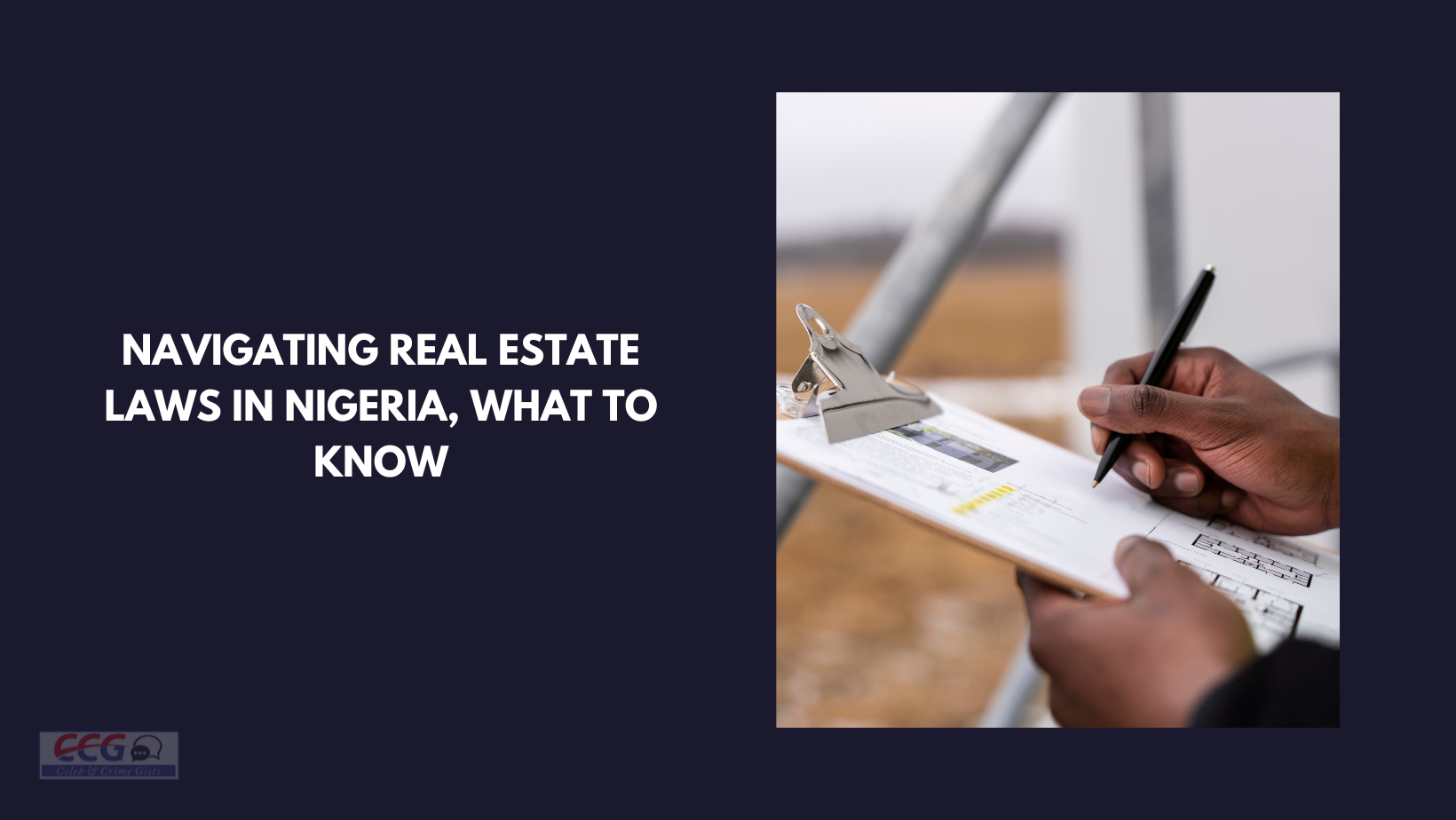Navigating Real Estate Laws in Nigeria’ Are you planning to invest in real estate in Nigeria? If so, it’s essential to understand the country’s complex and often confusing real estate laws. Whether you’re a first-time buyer or an experienced investor, navigating Nigeria’s legal landscape can be challenging. But don’t worry – we’ve got you covered! In this blog post, we’ll share everything you need to know about Nigerian real estate laws so that you can make informed decisions and avoid any legal pitfalls along the way. So let’s dive in!
What are Real Estate Laws in Nigeria?
Real estate law in Nigeria can be quite complex and diverse, depending on the location. Generally speaking, however, Nigerian real estate law governs the purchase and sale of real estate properties, as well as other related matters. Here are some key points to keep in mind when navigating Nigerian real estate law:
Navigating Real Estate Laws in Nigeria
1. Title to a property is generally determined by who originally acquired it – i.e., through inheritance, purchase or conquest. This means that different parties may have different title rights to a property.
2. Property ownership is prima facie evidence of an underlying legal right to use and enjoy it. This means that you can take actions (e.g., evicting someone from a property) even if you don’t have title to it legally – provided your actions are legally permissible under Nigerian law.
3. Real estate transactions in Nigeria are typically subject to several layers of bureaucratic oversight and regulation. This includes requirements for registration with the relevant government agency, filing proper documentation with that agency, and complying with any applicable zoning laws or regulations.
Who is Liable for Breach of Contract?
Nigerian law provides for a number of different entities to be liable for breach of contract, including the party who made the contract, the party who agreed to perform the contract, and any third party who participated in the performance of the contract. In some cases, liability may also extend to persons who induced or encouraged either party to make a contract.

The party who made the contract is generally responsible for ensuring that it is valid and enforceable. This means that the parties must have entered into an agreement that is reasonable and practicable – each side must have known what was being agreed to and been able to comply with its obligations under the contract. If one of the parties fails to comply with its obligations under the contract, this can lead to a breach of contract claim being filed against that party.
The party who agreed to perform the contract is usually responsible for fulfilling its obligations under the agreement. If a party fails to comply with these obligations, this can also lead to a breach of contract claim being filed against that party. In some cases, however, other individuals may be held liable if they knew or should have known about the breach and failed to take appropriate action.
Third-party participants in contracts can also be liable for breaches of contract if their actions cause damage or harm to one or both of the contracting parties. This includes anyone who helps negotiate or carry out a transaction – whether they are an agent, lawyer, banker, or other professional advisor.
How Do I Know If I am Bound by a Legal Agreement?
Real estate laws in Nigeria can be complex and difficult to understand. If you are considering buying or selling a property in Nigeria, it is important to know what rights you have and what obligations you may have under the law. Here are some questions to ask when investigating your legal rights:
-Do I need a lawyer to help me interpret the law?
-Do I need written confirmation of my agreement from the other party?
-What are my contractual rights and obligations?
-Can I cancel or change my contract without penalty?
-What happens if I break my contract?
-Can I sue the other party if something goes wrong?
Are There Any Exceptions to the Rules?
There are a few key exceptions to the rules that govern real estate in Nigeria. For example, if you are buying an apartment in a municipality, the laws of that municipality will apply. If you are buying an apartment in a private residence, the laws of the country in which the property is located will apply.
Another exception is zoning. In some areas of Nigeria, municipalities have enacted restrictive zoning ordinances that prevent certain types of development from taking place. This can be a problem if you want to build something new—you’ll likely need to get permission from the local government or buy an existing property that falls within the allowed zone.
There are some special cases where Nigerian law overrides general real estate rules. For example, contracts for sale and purchase must be in writing and signed by both parties. And finalizing a sale may require additional steps such as getting notarized signatures on documents stating that all conditions have been met.
Conclusion
Whether you are buying or selling property in Nigeria, it is important to be aware of the different real estate laws that apply. This guide will outline the most common laws and how to comply with them, so that you can avoid any potential legal issues. Make sure to read carefully and ask questions if there is anything you don’t understand!

